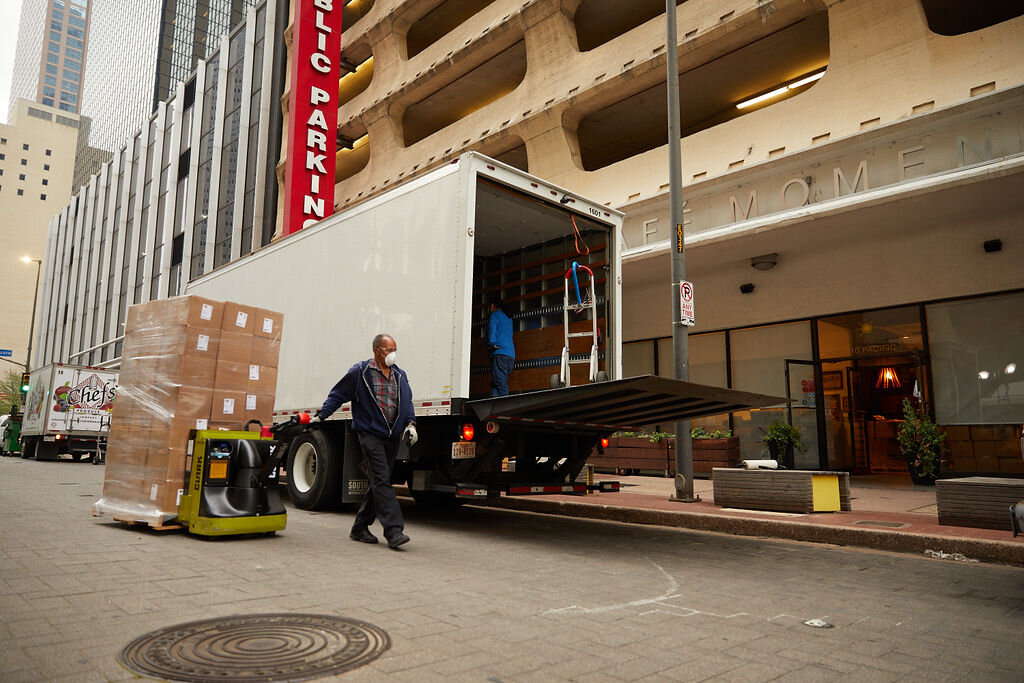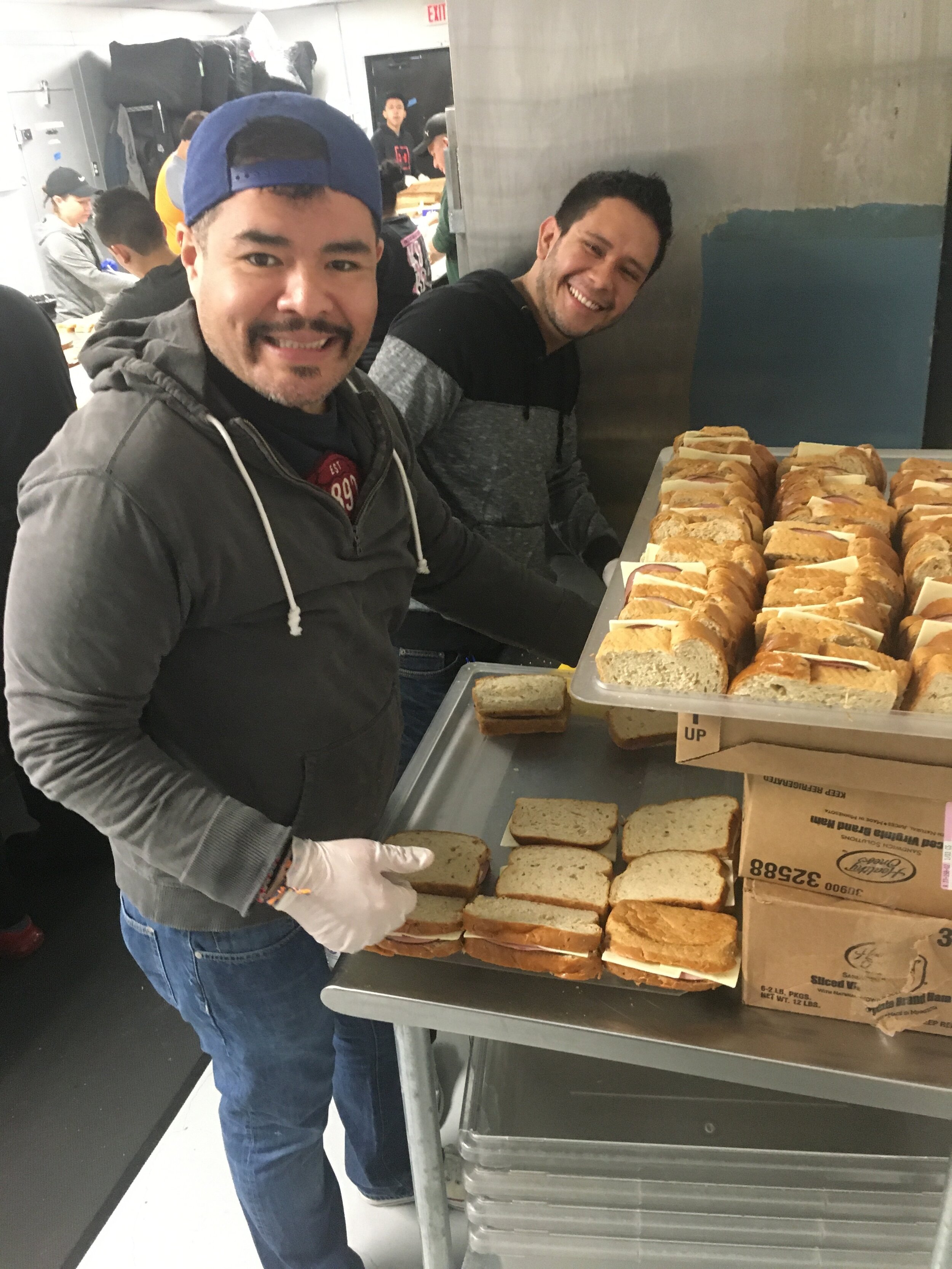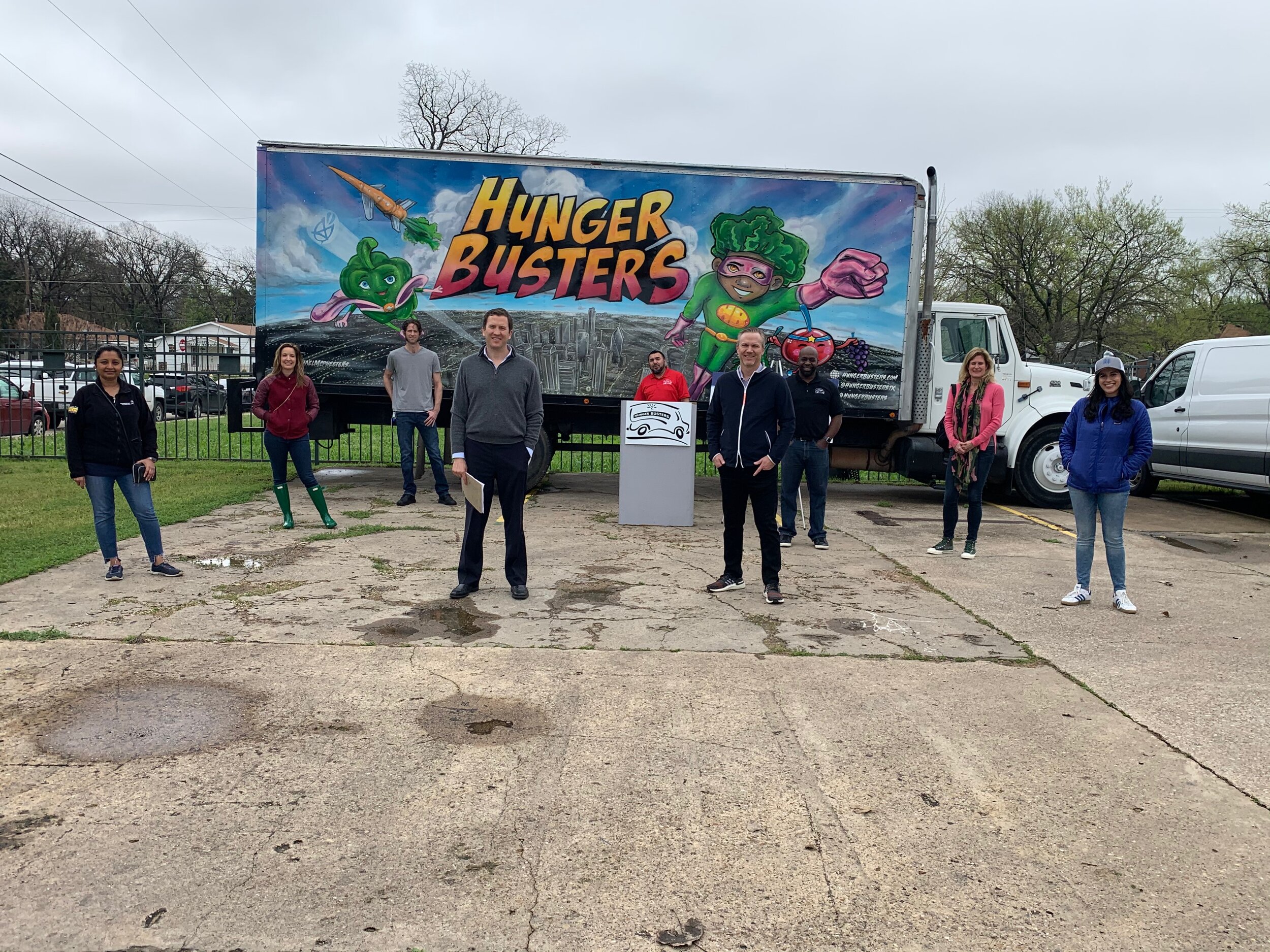Interview by Mary Martin. Photos courtesy of Get Shift Done.
Essential nonprofits in the food security sector are suddenly facing a shortage that goes beyond cans and boxes—volunteers. The teams that typically keep food banks and kitchens open are now staying at home in isolation, while hourly hospitality workers face lay-offs and furloughs as their restaurants are shuttered. Patrick Brandt and Anurag Jain came together as problem solvers, bringing their unique backgrounds in digital tools, people organizing, and food bank leadership, to create Get Shift Done. The brand new organization is a project using Shiftsmart technology with initial donor funding managed by Communities Foundation of Texas. The idea and implementation has already caught the attention of nonprofits beyond Dallas as Get Shift Done makes it possible for food banks to stay open and hospitality workers to earn a paycheck. We asked Anurag and Patrick to share the story about how they got started and why this project matters right now to the North Texas community.
Tell us the story of how Get Shift Done got started, and why you are passionate about solving this problem.

Anurag Jain, Executive Committee Chair, North Texas Food Bank
Anurag: My partner, Patrick Brandt, and I were talking just over two weeks ago about the fact that volunteers were not coming in for their shifts at food banks due to COVID-19 while at the same time restaurant workers were losing their jobs and looking for work. Patrick’s company, Shiftsmart, has a platform that schedules workers to work different shifts and I am the Executive Committee Chair at North Texas Food Bank so we understood the logistics of the food delivery chain.
We both have been involved in several philanthropic activities through the years and saw an urgent and growing need and thought we could create a solution. Get Shift Done for North Texas Fund was created at Communities Foundation of Texas to raise money to provide wages to hourly workers. It matches affected hospitality workers with nonprofits whose mission is to serve the food insecure to work for $10 hour as supplemental income.
North Texas Food Bank was the first location to sign-on and we had workers who had registered through the Shiftsmart app at their location three days after we opened the fund. We’ve now grown to 15 locations with unemployed hospitality workers staffing food banks, schools and food pantries making and delivering meals to children, families and the elderly.
How did your experience in nonprofit and entrepreneurship drive the growth at Get Shift Done?
Patrick Brandt, President, Shiftsmart
Patrick: We have both been involved in start-ups throughout our careers, and both very active in our community. As entrepreneurs, we weren’t afraid to just push “go” once we realized the demand and saw what we thought a viable solution. And thankfully, we knew the right partners to call, such as Communities Foundation of Texas, which was willing to move as fast.
The team and organization formed quickly during the early stages of Dallas’ COVID-19 shutdown. How did partnerships and collaborations with other organizations make that possible?
Anurag: I called North Texas Food Bank to see if they were interested in this system and Patrick contacted Communities Foundation of Texas. Both said “yes” so we jumped in right away. Patrick made the Shiftsmart platform available and their leadership team worked quickly to set it up for Get Shift Done workers. Everyone embraced the idea and offered lots of support.
In the last two weeks, what on-the-ground impact has been most meaningful to you and your team?
Anurag: In its first full week that ended last Thursday, Get Shift Done paid for 25,000 hours of work and prepared more than a million meals at 20 nonprofit locations. This week, the fund will pay $400,000 in salaries, which is the equivalent of 1,000 workers working full time. That impact is why we are doing this.
On the first day, at the first shift of workers working at North Texas Food Bank, there was a gentleman who had taken a train, two buses and then walked the rest of the way to work his shift. He was eager to work and make some extra money. He stayed after his shift was over and helped clean up and take out the trash.
Patrick: The food pantries are telling us that they are seeing a lot of first time clients. More people are already showing up needing help. It is heart breaking. We are also being told by the food pantry managers that the Get Shift Done workers are working at a higher productivity than the volunteers. They work in the food industry and are experienced at working with food and moving quickly—so they get a lot done very efficiently and effectively.
Photo: Chad Windham, Cafe Momentum
As you were growing up, who inspired you to give back to the community? Who inspires you today?
Anurag: I grew up in India and was inspired by Mahatma Ghandi. His leadership changed not only India but the world as an example of creating movements of civil rights and freedom that have been modeled by others ever since. He was one man who made a difference to so many. Today, it is regular people that step up in moments of extreme difficulty and don’t let constraints come in their way and achieve the extraordinary. We can all make a difference in the lives of others.
Patrick: I didn’t really think of anything unique growing up because it was just part of what my parents and grandparents did. Although they weren’t really in a position to be financial donors, they were tirelessly serving the community throughout my childhood, volunteering in various ways.
Can you share a story of someone who is working with Get Shift Done and what the opportunity has meant for them?
Photo: Hunger Busters
Patrick: We had a worker at one of our food pantries who was asked what she has learned from this crisis and she said she’s learned she needs to save money. She said she tells all her friends now they need to save part of their paychecks so they have money for unexpected times like this.
Anurag: A worker told me that once she returns to her regular job she will spend time volunteering at the Food Bank because she never knew so many people were in need of food and that she felt so great being able to help others. She was grateful that Get Shift Done helped her in her time of needing income.
So much has already been accomplished, but what are the next steps for Get Shift Done?
Anurag: We are getting calls from cities and food banks all over Texas and the country who are interested in replicating the program to their areas. We are about to sign on new cities and begin registering displaced hospitality and service workers in those areas. As long as a city or region has a facility in place that is operating to serve the food insecure and there is funding to pay the workers in that area, we can get them launched. We’d like to see this in place in any city, state or even country that has the infrastructure in place for us to share the Shiftsmart platform and our best practices to support them in their communities.
Photo: Hunger Busters
How can the North Texas community support the Get Shift Done efforts?
Our community can donate to the Get Shift Done for North Texas Fund at Communities Foundation of Texas. Visit getshiftdone.org to donate.
If this story has inspired you to support the North Texas nonprofit community, visit our How to Support Nonprofits During Social Isolation page to learn how you can get involved!



